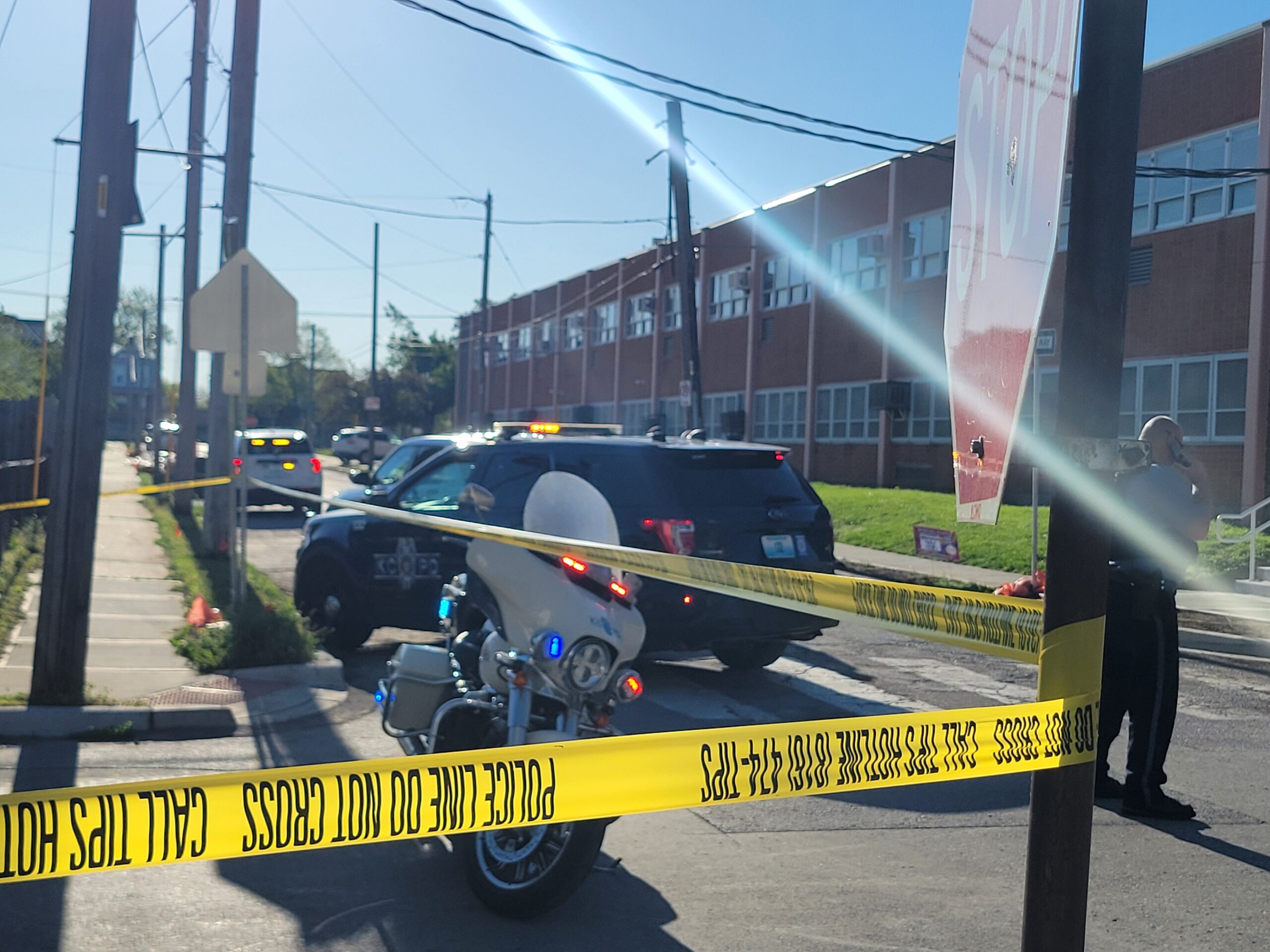 By Paul Thompson
By Paul Thompson
Northeast News
Kansas City’s new single terminal airport is only one Council vote from getting off the ground.
During its legislative session on Thursday, February 8, the KCMO City Council is expected to vote on the city’s Memorandum of Understanding (MOU) with Edgemoor Infrastructure and Real Estate to construct the new airport.
The MOU moves on to the full City Council following the Airport Committee’s unanimous decision on Thursday, Feb. 1 to approve the document. Committee members Sly James, Jolie Justus, Jermaine Reed, Quinton Lucas, Dan Fowler and Teresa Loar all voted in favor. Nearly as important as the Airport Committee votes, however, were supportive comments made by Council members who aren’t part of the committee.
Particularly impactful were the comments from 5th District Councilwoman Alissia Canady, who was an outspoken opponent of the original MOU released on November 30, 2017. Canady commended all involved for their work to improve the document over the past two months, suggesting that a three-week break over the holidays helped reinvigorate the process.
“I think this is an MOU that Kansas City can be proud about,” Canady said.
The City’s negotiation team has worked diligently since January 18 – when the City Council met as a Committee as a Whole to compile a wish list of 45 additional terms they wanted added to the agreement – to hammer out the details of a new MOU. That process, which ultimately resulted in 43 of the 45 requests being approved by Edgemoor, included seven meetings between Jan. 19 and Jan. 31.
The document being re-introduced by outside counsel has been met with considerably more optimism than the MOU that was rejected by a 9-4 supermajority of the Council on December 14. One notable tweak has been with the terms of the reimbursement agreement, which would be executed if the City terminates the MOU for any reason, or if Edgemoor terminates the agreement for City wrongdoing. While some Council members balked at an initial reimbursement proposal that could have cost $30 million or more, that figure has been capped at $23.2 million in the most recent version of the document. The savings on the reimbursement agreement are the result of new language to assure that the City will incur no costs for work done before the election, that all duplicative costs between Edgemoor and its team members of Clark/Weitz/Clarkson have been removed, and that the City will only need to reimburse Edgemoor for work product it can re-use.
Edgemoor has also worked to sway the Council’s impression of the MOU by continuously bolstering a Community Benefit Agreement (CBA) that was originally valued at roughly $10 million. By Jan. 18 that package had increased to a total estimated value of $24.2 million, and on Feb. 1 outside counsel Charles Renner returned to the Council to present a CBA valued at $28.85 million. New additions include $2 million for a self-bonding program – underwritten by project partners – designed to help local firms bid on airport projects, $1.5 million in cash and in-kind contributions for housing needs and other projects in the Northland, $2 million for Northland infrastructure in and around the airport, $250,000 in supplier support to encourage small business participation, and $500,000 for an on-site ombudsman who will recruit and work with apprentices on-site.
The alterations are expected to fulfill Council requests from the original Jan. 18 Committee as a Whole meeting, while also increasing the likelihood that the CBA contained in the MOU is approved by the Federal Aviation Administration (FAA). The FAA’s approval is required because the project will be funded through airport revenues.
During the Jan. 30 meeting, Councilman Lucas asked outside counsel about the threshold to alter or remove Community Benefit Agreement obligations at the behest of the FAA. Specifically, he wondered: could the City give up elements of the CBA based simply upon a letter from the FAA stating that they don’t like the arrangement, or would it take more than that? To that question, outside counsel Charles Renner suggested that continued negotiations would likely ensue.
“If there are concerns raised on a particular aspect or approach, our intent is then to engage on the best way to accomplish the goals,” Renner said.
On Feb. 1, Renner ran through the financial details of the project as presently constructed. Edgemoor will utilize a debt-only, conduit bond financing model, with the project funds derived only from airport revenue. Renner suggested that the debt-only model is expected to save an additional $90 million over a private financing model, such as what Burns & McDonnell originally proposed in the spring of 2017.
If the MOU is approved, Edgemoor will move forward with an aggressive timeline that would see the developer issue a Request for Proposal for a conduit issuer (an example would be the Port Authority of Kansas City) by the end of February. The finalization of a financing model is scheduled for May 2018, with ultimate City Council approval set for August and financial close expected by September.
Following the Feb. 1 meeting, Lucas expressed optimism about the proceedings while acknowledging that there’s still time for roadblocks to emerge over the course of the next week.
“Absolutely; that’s politics. But I think everybody is conducting their due diligence and has done the research here that’s necessary,” Lucas said. “So I think every Council member, if they have a problem, should come out, express what it is, and over this next week we’ll get a chance to have a debate and hopefully get things moving.”
Councilwoman Canady expounded on the improvements that have altered her thinking on the MOU. Deciding factors included Edgemoor’s willingness to help small businesses get bonding to work on the project, as well as the developer’s decision to bring in local governmental affairs experts to help them navigate the negotiation process.
“The original MOU was not a good deal for Kansas City – I’ve said that consistently,” Canady said. “We left a lot of meat on the bone in December, and that’s why we rejected it. But today what we have is a collaborative agreement that the majority of this Council should be supportive of.”
Next, the negotiation team will work to tie up loose ends ahead of the deciding Feb. 7 Council legislative session. For instance, some of the updates presented to the City Council during its Jan. 30 Committee as a Whole meeting still need to be formally added to the MOU. Those updates include the addition of specific qualifications and standards for high-level project personnel and new project reporting obligations requested by Council.
The project reporting addition states that the developer and the Aviation Department “shall jointly develop and provide to City a comprehensive report and presentation” by July 1, 2018 that updates City Council members on the status of the development agreement, the key issues and milestones of the design development ahead of financial close, the developer’s ability to meet its obligations and timeline, and a review of the work conducted by various project committees.
The negotiation team will also look to tidy up the affirmation of minority and women-owned enterprise (MBE/WBE) goals within the MOU before the document is voted on. Some Council members asked for assurances that Edgemoor will continue to embark on good-faith efforts to reach their stated 35% combined construction participation goal for MBE/WBE businesses. During the Jan. 18 presentation before the Committee as a Whole, Lucas had taken umbrage with language that suggested Edgemoor would defer to the City’s Human Resources Division for direction on the participation goals, leaving the door open to the possibility of reducing those expectations.
“I do not like that in the slightest,” Lucas said at the time.
By Feb. 1, Renner relayed that Edgemoor had committed to altering that language to satisfy Lucas and the rest of the Council. Exactly how that final wording would look remained a mystery, however, as the revised MOU has yet to be released to the public. In a follow-up discussion on Feb. 1, Renner said that he expected the document to be publicly released ahead of the Feb. 8 legislative session.
“I don’t know why it wouldn’t be,” Renner said. “The Council has been pretty adamant about having those documents made available in advance.”
Another loose thread are the ongoing negotiations between the developer and Kansas City’s labor workforce. When 1st District Councilman Scott Wagner pressed Edgemoor about the status of those negotiations during the Jan. 30 Committee as a Whole meeting, the development team suggested that while there is no overriding agreement with organized labor, there has been consensus on the project’s pre-apprenticeship program. Those negotiations are expected to continue even as the MOU barrels towards a Council vote on Feb. 8.
In the interim, statements from the Council suggest that they are coalescing around a document that has seen dozens of alterations since the Council rejected the original incarnation on Dec. 14.
“We’ve been moving in the right direction, and this is what government is supposed to do,” Lucas said. “I think people want us to ask questions, they want us to get real answers and they want us to get real movement. You’ve seen that, and that’s what political pressure is.”
Canady didn’t mince words regarding the initial MOU, saying that Edgemoor came in “totally ignorant” of Council expectations when they began work on the document. She saved some blame for the Council as well, suggested that “we didn’t really have a road map” to offer the developer, since the Council was also new to the process. All things considered, Canady thinks that the MOU negotiation process has markedly improved since its opening stumbles.
“We took a different approach this time when negotiating the MOU,” Canady said. “It was a more collaborative approach, where all of our colleagues were able to weigh in on what we thought were substantial things that needed to be included in the MOU.”
Fourth District Councilwoman Jolie Justus, who has been the chair of the Airport Committee since August of 2015, is as ready as anyone to reach a deal on the MOU. Still, Justus cautioned after the meeting that she’s not taking anything for granted despite the progress made in the past few weeks.
“The bottom line is, though, we had nine people in December say loud and clear (on the Council) that they had concerns with the MOU. Not all of those nine people were in the room here today,” Justus said. “One of the things we have to do is continue to follow up with everybody on the Council to make sure that all of their concerns have been addressed to the best of our ability.”


















